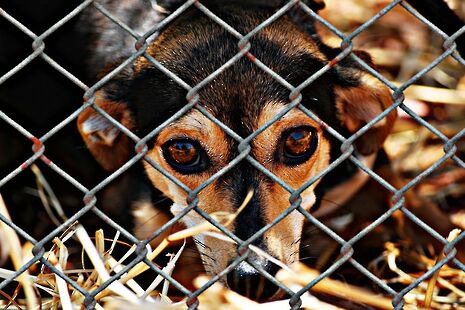Are we justified in criticising China’s dog meat festival?
Isabelle Burroughes explores whether we have a leg to stand on when we find eating dogs outrageous, or if it is simply cultural intolerance

In the past 24 hours most of you will probably have eaten some form of meat. Maybe you had a bacon sandwich for breakfast, paid a visit to McDonald’s for lunch, or perhaps indulged in a Sunday roast this weekend. You would also probably have expressed disgust if you had heard of China’s Yulin Dog Meat Festival.
Despite rumours of it being banned, the ten-day Yulin ‘Lychee and Dog Meat’ Festival went ahead as planned in June. Over 10,000 dogs were consumed during the course of the event. It is a highly controversial issue with animal rights activists, many of whom have actually tried to rescue dogs from the mass slaughter. The festival and its practices have received widespread negative coverage in the western media.
“Can we really argue that dogs are any different from the cows, pigs, and chickens that are slaughtered every day?”
However, do we really have the right to criticise China for this practice? The Sun cited the event as being ‘stomach-churning’ and presented the Chinese belief that the consumption of dog meat is no different to that of more common animal meat, such as pork or beef, as something strange or misguided.
Yes, in Britain we see dogs as domestic pets, animals to be looked after and so entitled to a cruelty-free life. But can we really argue that dogs are any different from the cows, pigs, and chickens that are slaughtered in similar numbers every day as part of our diets?
Cambridge University researchers have found that pigs can recognise themselves and have an understanding of the workings of mirrors. If pigs have these cognitive abilities, then what makes them any different to canines? Both animals can experience just as much pain as the other, and it is undeniable that both will feel the same kind of fear when confronted with death. So why are we so quick to condemn China for eating one kind of meat when we eat another?
In 2016, Animal Aid released undercover footage of a South Yorkshire slaughterhouse showing sheep running in circles in a scared attempt to avoid being stunned. Further film displayed the udder of a dairy cow exploding. Despite the obvious horror of these circumstances, the media coverage was minimal.
Yet just two months ago, when I scrolled through Twitter, I saw various petitions calling for the cancellation of Yulin and numerous references to it as inhumane and outdated. Our accusations of the Yulin Festival for its ‘cruelty’ in slaughtering dogs and stringing up their carcasses in public seem pretty hypocritical when compared with the treatment some animals receive before they appear on our supermarket shelves.
It raises the question of whether our issue is with animal cruelty itself, or with a difference in culture. Is it our moral integrity that cries out against the practice, or is it a form of xenophobia? In a country where Theresa May proposed bringing back fox hunting as part of her general election manifesto, do we ourselves possess the level of compassion that we expect other countries to subscribe to? Britain likes to portray itself as an advanced and ethical civilisation, and on many levels it is. Despite this, we allow an incredible number of animals to be slaughtered merely for the pleasure of our palette.
The Mirror reported that the average human being eats over 7000 animals in their lifetime. Although some people require meat for health purposes, the amount available to us is excessive and unnecessary. The government does nothing to cut down on this vast number and the conditions of slaughterhouses rarely receive attention in the mainstream media.
Expressing outrage at China for eating dogs while we eat pigs and cows politicizes the issue beyond the basis of animal rights, as we choose to attack an aspect of their culture rather than the ethics of the issue. Eating dog is traditional in China in the same way that we see eating lamb as a part of our cultural history, and portraying one tradition as worse than the other is simply an attempt to exert cultural dominance.
Our attitude towards animal rights around the world presents us with an uncomfortable truth: perhaps we care more about appearing to be ethical than actually being ethical. Feel free to criticise the cruelty the dogs face in Yulin, but the foundations on which you plant your outrage are incredibly unstable if you’re still up for taking a trip to KFC
 Comment / Plastic pubs: the problem with Cambridge alehouses 5 January 2026
Comment / Plastic pubs: the problem with Cambridge alehouses 5 January 2026 News / SU stops offering student discounts8 January 2026
News / SU stops offering student discounts8 January 2026 Theatre / Camdram publicity needs aquickcamfab11 January 2026
Theatre / Camdram publicity needs aquickcamfab11 January 2026 News / Cambridge academic condemns US operation against Maduro as ‘clearly internationally unlawful’10 January 2026
News / Cambridge academic condemns US operation against Maduro as ‘clearly internationally unlawful’10 January 2026 Comment / What happened to men at Cambridge?31 December 2025
Comment / What happened to men at Cambridge?31 December 2025









